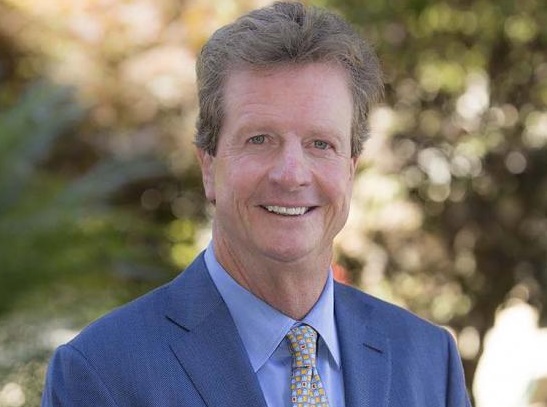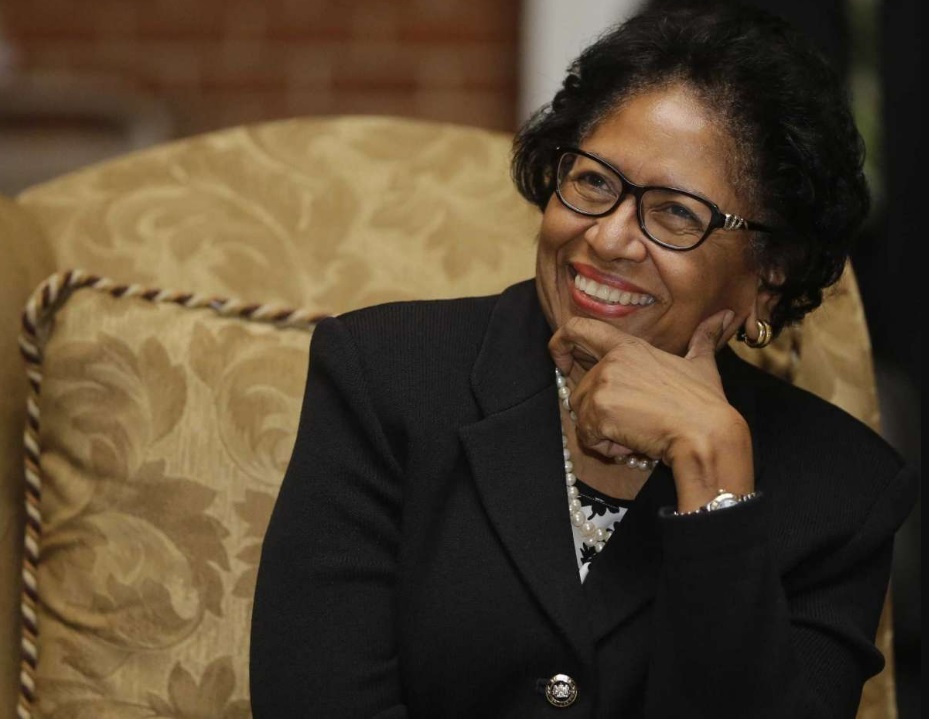Oskar Eustis

Oskar Eustis’ prodigious career in theatre, began at the young age of 16, when he co-founded the Red Wing Theatre Company in New York City. He served as the company’s Artistic Director until 1980, when he moved to the west coast. Between 1981 and 1994, he served as resident director, dramaturg, and eventually Artistic Director of the Eureka Theatre Company in San Francisco and then as the Associate Artistic Director of the Mark Taper Forum in Los Angeles. During that period, he commissioned Tony Kushner’s Angels in America, and directed its world premiere.
In 1994, Eustis was hired as Artistic Director of Trinity Rep during a moment of uncertainty for the theater. The theater’s finances were in doubt, and the audience was not as reliable as it had been during the previous years. Despite these hardships, Eustis immediately received help from the Providence city government to stabilize Trinity’s finances, while also delivering productions to the community that were well-received as well as commercially successful. Soon he was attracting donors and creating new partnerships that would contribute to the continued success of the theater.
Having worked as a professor at Brown, Eustis built on that connection and in 2002 created the Brown/Trinity Consortium (now the Brown/Trinity MFA Program). The program offered students an opportunity to study under working professionals at Trinity. In 2005, Trinity expanded to include the Pell Chafee Performance Center, which is home to classrooms and rehearsal spaces for the Brown/Trinity program.
After serving as Artistic Director for 10 years, in 2005 Eustis left Rhode Island to begin his role as the Artistic Director of the Public Theater in New York City. Eustis continued to produce groundbreaking work, playing a role in the creation of Hamilton and winning a Tony in 2009 for best revival of a musical for his production of Hair. Eustis continues to serve as Artistic Director of the Public Theater, as well as a professor at New York University.
Thomas Ryan

Thomas Ryan stewarded the expansion of CVS into the largest company based in Rhode Island, as well as one of its largest employers.
Ryan attended the University of Rhode Island, where he graduated in 1975 with a degree in pharmacy. He began his career at CVS upon completion of his degree, beginning as an in-store pharmacist and eventually becoming Vice President of Pharmacy in 1985, Senior Vice President of Pharmacy in 1988, Executive Vice President of Stores in 1990, and then President and CEO in 1998. During his tenure as President and CEO, Ryan presided over a period of extraordinary expansion and acquisition for the company, with CVS going public in 2000.
He has remained a devoted supporter of URI, serving on the Board of Trustees for the University. Ryan has contributed to the major expansion of URI, financially supporting the construction of the Ryan Center, which bears his name and in 2013, funding the construction and establishment of the George & Anne Ryan Institute for Neuroscience.
Ryan’s philanthropic work also includes the founding of the CVS Golf Charity Classic, which has donated over $23 million to charities across Southern New England. Ryan has received honorary doctorates from Johnson & Wales University and the University of Rhode Island, the Public Service Award from Phoenix House, and the Alexis De Tocqueville Society Award from United Way of Southern New England. Ryan currently serves as an operating partner at Advent International Corporation, is a National Advisor for Year Up, and a trustee of the Ryan Family Foundation.
Ruth Simmons

Named America’s Best College President by Time in 2001, Ruth Simmons immediately made history by becoming the first woman president of Brown University, the first Black president of an Ivy League institution, and the first Black woman to lead a major university in the United States. Having arrived at Brown after her previous position as President of Smith College, Simmons looked to create lasting change at Brown by taking on challenges directly.
In 2003, in response to a controversial lecture on campus arguing against reparations for the ancestors of enslaved people, Simmons established the Steering Committee on Slavery and Justice, which looked to investigate Brown’s ties to the transatlantic slave trade. That same year, the University implemented a means-blind admission policy, ensuring all students were considered for admission regardless of income level. Simmons also worked to grow Brown’s scholarship programs and various departments, raising more than $1.6 billion over five years.
In 2012, Simmons stepped down as president but remained on the faculty as a professor until becoming the first female president of Prairie View A&M University in Texas in 2017.
Simmons has received over thirty honorary degrees, served on numerous boards, and was a presidential appointee of President Bill Clinton’s Women’s Progress Commemoration Commission in 1999 and President Barack Obama’s Commission on White House Fellowships in 2009.
